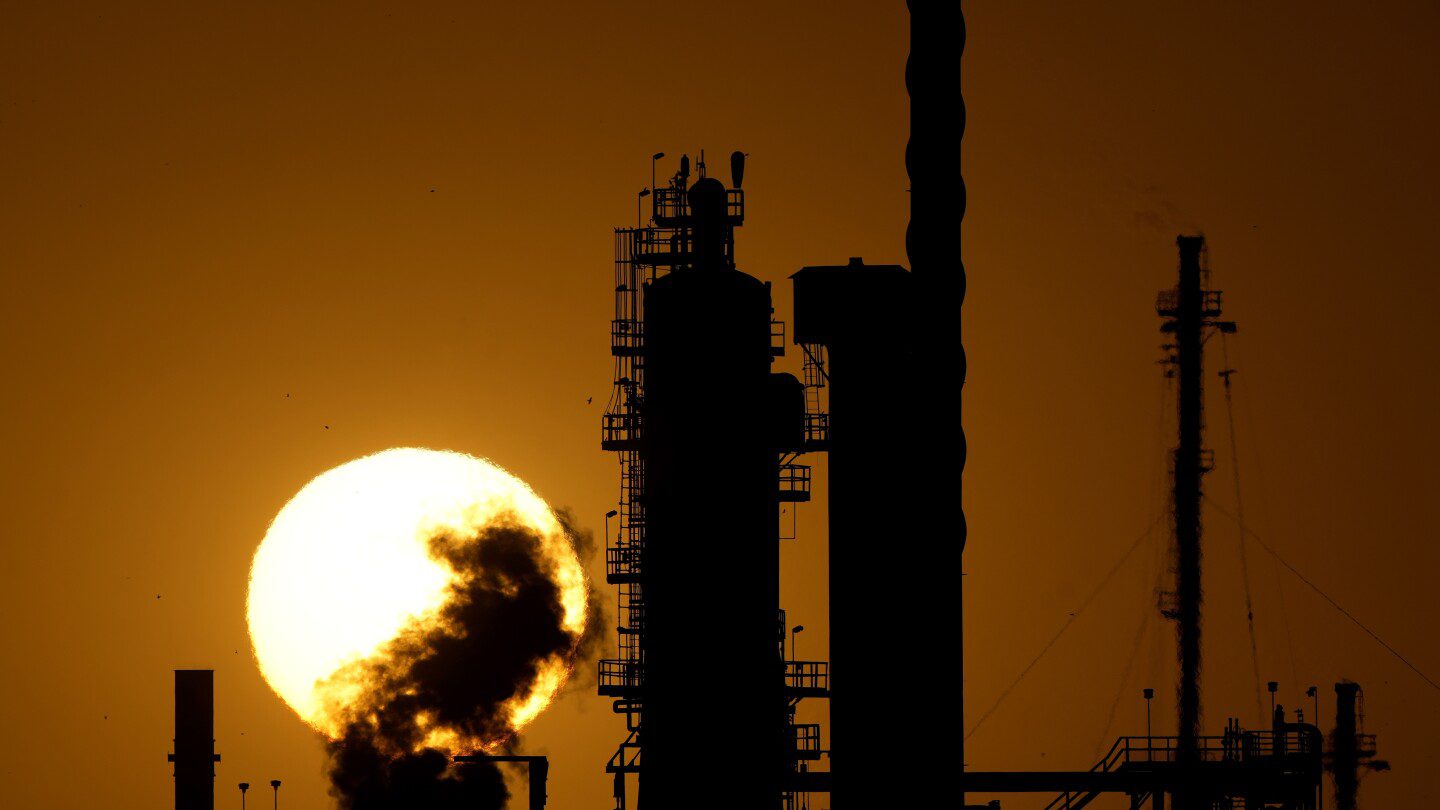
President Trump’s Energy Policy Shift: An Overview
Upon taking office, President Donald Trump initiated significant changes to the climate change and renewable energy strategies established by his predecessor. One of his first actions was to announce a national energy emergency aimed at accelerating fossil fuel production, a directive he characterized with the slogan “drill, baby, drill.”
This emergency declaration urges the federal government to streamline the process for oil and gas firms to develop projects, including reducing environmental scrutiny, in an effort to lower consumer prices and expand exports to global markets.
Democratic critics have labeled this initiative as a mere façade, highlighting that the United States is currently the world’s leading producer of oil and natural gas. They argue that the Biden administration’s Inflation Reduction Act has simultaneously promoted renewable energy while creating job opportunities and addressing the pressing issue of climate change, particularly as 2024 has been recorded as the hottest year ever amid a decade of extreme heat.
Senator Tim Kaine from Virginia remarked that such a decision could set a dangerous precedent, where any president could declare a fictitious emergency to bypass Congressional authority as enshrined in the Constitution. Kaine added that the Democratic-led Senate attempted to pass a resolution to overturn Trump’s declaration, but it failed with a vote of 52-47.
As the Trump administration moves forward, the environment for fossil fuel production in the U.S. has become more accommodating. Legislative support has surfaced, with both the House and Senate backing efforts to repeal a methane fee introduced under Biden. This recently passed measure is on its way to the president’s desk.
Moreover, reports suggest that the head of the Environmental Protection Agency (EPA) has urged the White House to revisit a critical finding regarding greenhouse gases’ threat to public health. This finding, a cornerstone of the agency’s authority to regulate emissions, dates back to the Obama administration.
Key Actions of the Trump Administration to Foster Fossil Fuel Production:
Lifting Restrictions on LNG Exports:
The Biden administration previously paused the evaluation of new liquefied natural gas (LNG) export terminals, a move applauded by environmentalists concerned about the potential increase in emissions from a rise in exports. However, this pause did not stop ongoing projects. Trump has since reversed this decision, anticipating a significant increase in global LNG demand.Expanding Drilling Opportunities:
Trump has made more land accessible for oil and gas leasing, diverging from Biden’s efforts to protect sensitive environments such as Alaska’s National Wildlife Refuge. This has raised concerns from environmental groups that are currently pursuing legal action against these policy changes.Accelerating Clean Water Act Permits:
The Army Corps of Engineers has been directed to prioritize Clean Water Act permits in a manner that could expedite fossil fuel projects. Although there was an initial indication to fast-track these permits, the agency has indicated a need for further review.Significant Workforce Cuts:
Critics highlight the severe reduction in federal personnel, particularly within the EPA, threatening the expertise necessary for safeguarding public health and natural resources. During a cabinet meeting, Trump suggested cutting approximately two-thirds of the EPA’s workforce, raising alarms about the long-term ramifications for environmental protection.- Executive Actions Targeting Renewable Energy:
Trump has executed orders that temporarily halt offshore wind projects and administrative approvals for renewable energy initiatives. Moreover, he has moved to eliminate tax incentives for renewable energy, which could result in increased costs for consumers and hinder the transition to clean energy.
Trump’s policies are projected to increase harmful emissions and potentially push the United States further from meeting international climate commitments, as analysts warn of a growing reliance on fossil fuels amidst rising energy demands from tech sectors like data centers.
Conclusion:
As the dynamics of U.S. energy policy continue to evolve under the Trump administration, the interplay between fossil fuel production and environmental protection remains a contentious issue, with substantial implications for public health, ecological conservation, and climate change strategies.









